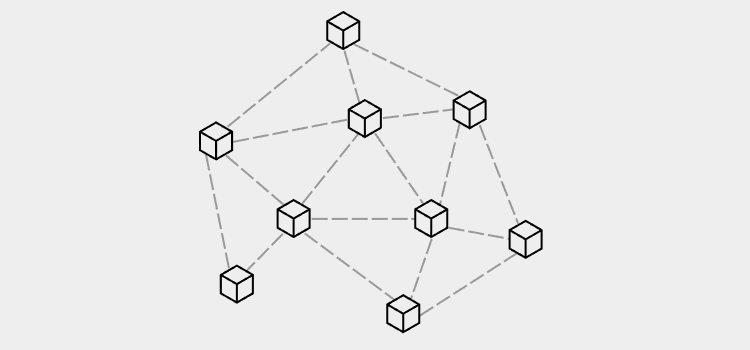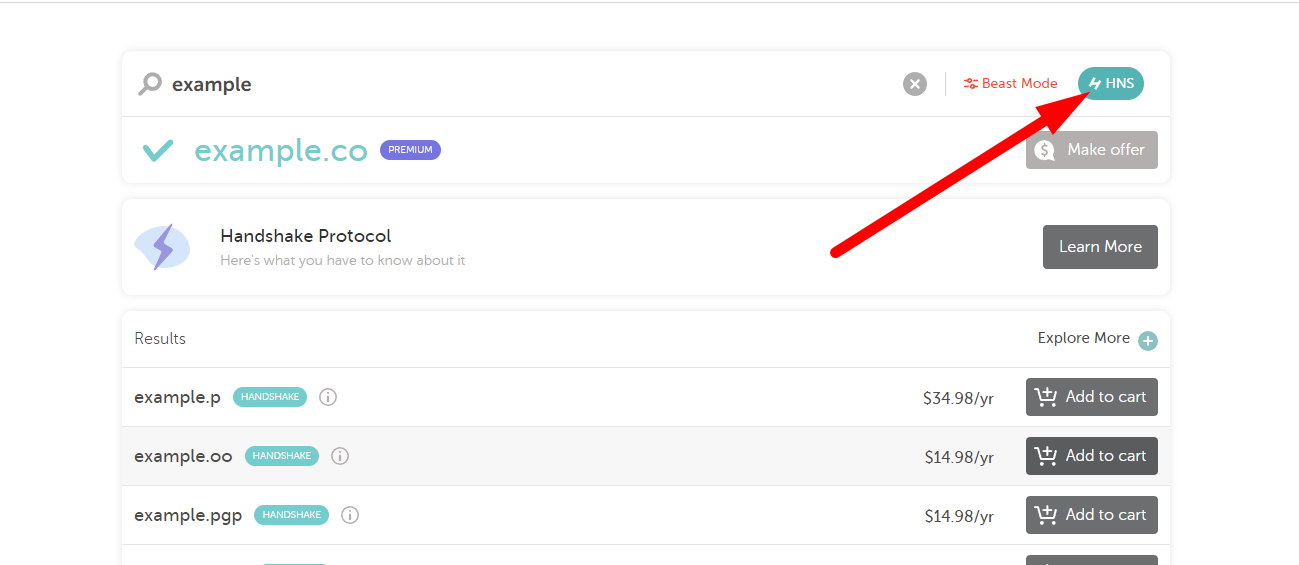Quick Links
Handshake domains are a new type of DNS system that many domain name providers are starting to offer. It runs on the same blockchain technology that powers Bitcoin and Ethereum, and has the potential to decentralize the web. But is it worth your time?
Why Use Blockchain Based DNS?
DNS is a very centralized system. The management of domain names is controlled by ICANN, the Internet Corporation for Assigned Names and Numbers. And since DNS records must be served from a server with authority, the root DNS naming zones are controlled by only a few centralized servers.
While this works well to protect malicious actors from taking over the internet and wreaking havoc, it does present a few problems. You can't purchase domain names directly from ICANN---you must go through an accredited registrar. This means you must give money to third party companies that you may not want to do business with, and it also means you're subject to those companies' rules and regulations; services like GoDaddy have been known to revoke domain names for problematic content.
Central authority for DNS also means central control, and a big part of the cryptocurrency movement is having decentralized control through peer-to-peer networks. This is what Handshake Domains are trying to fix.
By having the root DNS information stored in the blockchain---an immutable collection of data hosted by many individual users---DNS queries can be securely resolved without the need for any special root DNS name servers.
Should You Use Handshake Domains?
The short answer to "should you use it" is currently no, not really. In its current state, Handshake domains are an experimental tech demo---it even says so on the official community website. That doesn't mean it's not promising technology for the future, it just has some hurdles to overcome before it gets there.
The biggest problem is that it's not a drop-in replacement for regular DNS. Web browsers like Chrome and Firefox currently cannot connect to handshake domains without extra configuration, making them basically dark web domains without first-party support.
In order to access handshake domains right now, you'll first need to be aware of what they are in the first place, and then install a Chrome or Firefox extension to resolve them. You can also use a customized DNS service like NextDNS, which can be configured to resolve them as well.
Another problem that faces decentralized services in general is managing spam attacks, and other bad actors looking to exploit the lack of centralized management. For example, if it was just free to register names, it's possible for a single person to wreck the whole system by registering millions of names.
Handshake aims to combat this, like most other crypto projects, with a token currency called Handshake coin (HNS). This coin is used to register domains, making it costly for bad actors to abuse the system. Handshake allocated the majority of the initial coins to a large base of Github users active in free and open source (FOSS) software projects, meaning it's largely moderated by the FOSS community as a whole.
Are Handshake Domains Viable for the Future?
Even if, in the future, Chrome, Firefox, and other big browsers get official support for handshake domains (or another similar system), it'll be hard for most website owners to justify using a handshake domain instead of a traditional one.
Most companies hosting websites want users to have an easy experience, and most people want to type in
google.com
and have a functional webpage. Whatever does that the simplest and fastest is ideal, and overall, using a complicated decentralized service is a very big switch for something that most regular everyday users couldn't care less about.
However, as an alternative to traditional DNS, handshake domains could be interesting. At the very least, a stable name root name resolution service that isn't bound to the regulations of ICANN does offer some utility for people, especially if you want to use a different top-level domain (TLD).
Handshake also claims to be "more secure," as a decentralized service is less prone to hackers taking down the entire network. While this is true, large-scale DNS-based attacks aren't exactly common, and should handshake become mainstream, it's likely to suffer from some of the same attack vectors as traditional DNS.
Despite the problems with adoption, the core tech is viable to replace DNS should the industry decide to provide browser support. It's a much more complicated system, but it works well, and is fast enough to serve as a replacement. After all, DNS queries get cached for a while, so it's not like it's going to add too much latency to everyday browsing.
How Do You Buy a Handshake Domain?
If you currently own a traditional domain name, you can also register it on the handshake blockchain. This process involves setting up DNSSEC to prove that you own the domain name in ICANN's system, and then using Handshake's command line tool to claim the domain.
Buying a new handshake domain is a little weirder. Handshake domains actually go up for auction, and you'll need to set up a wallet with handshake coins to bid on your domain.
If that's too complicated for you, you can also pay a premium to buy them through traditional registrars. For example, Namecheap offers registration and management for handshake domains through their system:
Currently, there's no way to transfer these domains outside of Namecheap.



